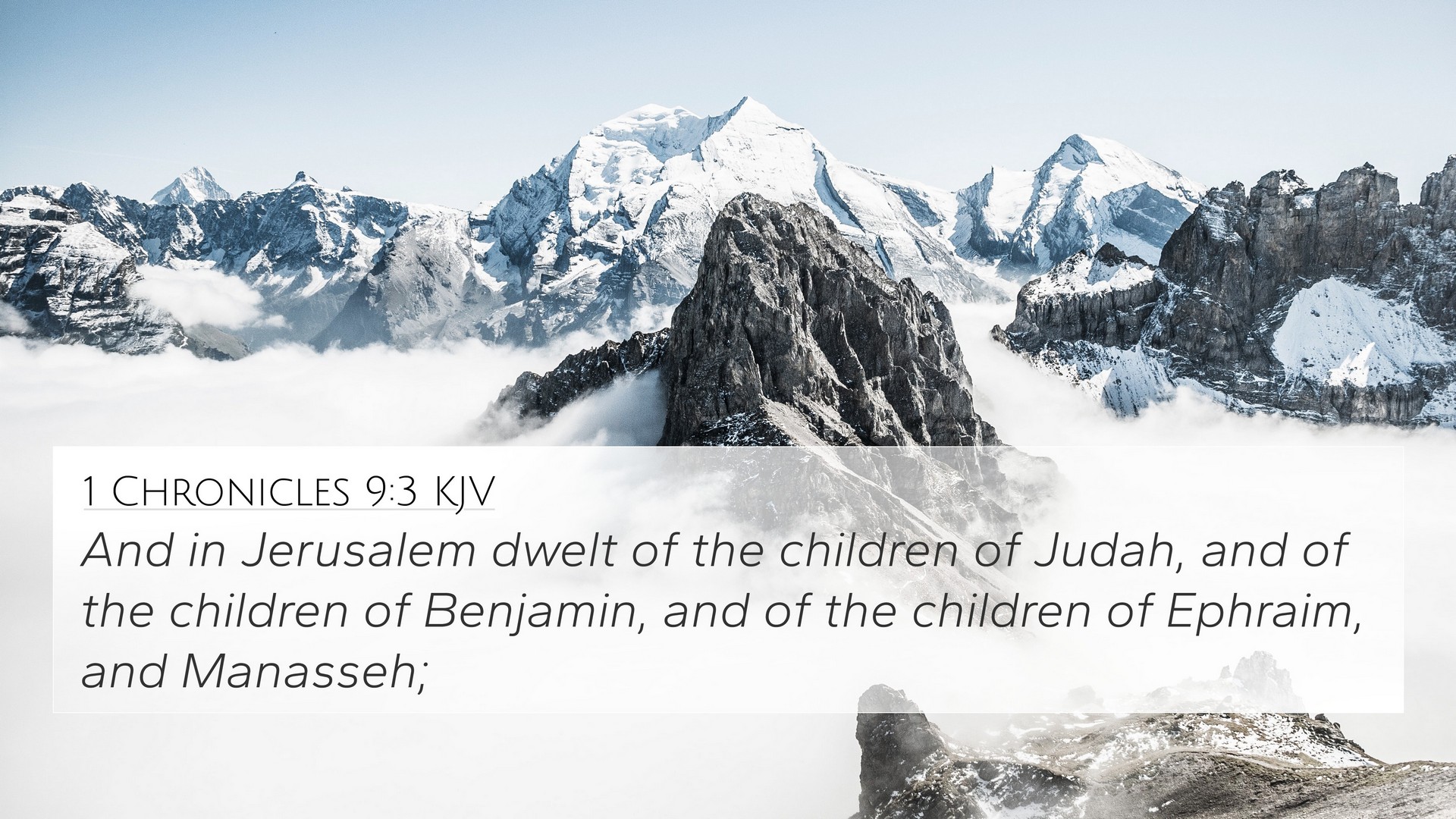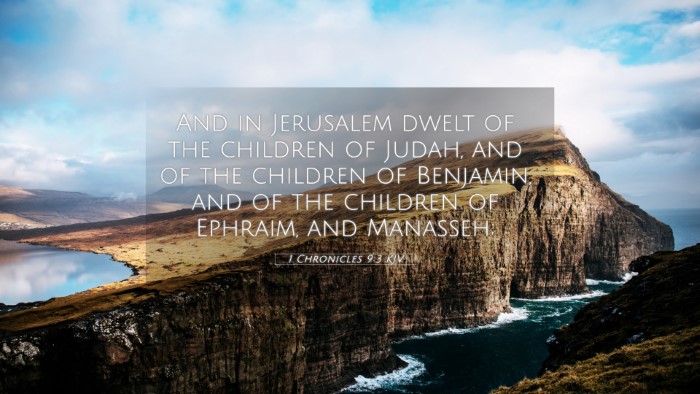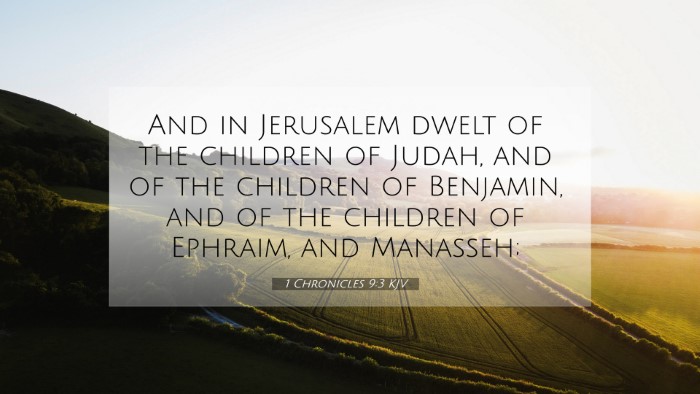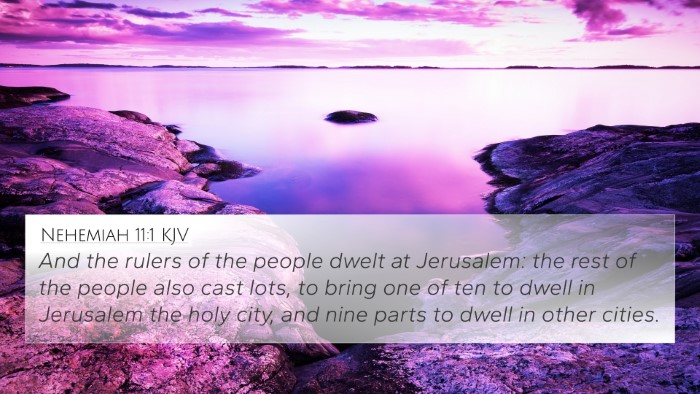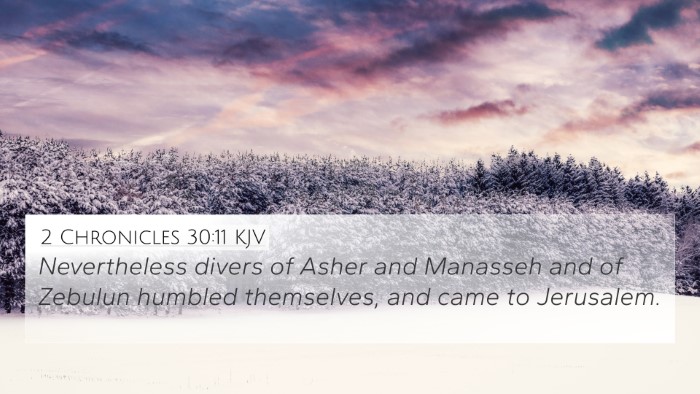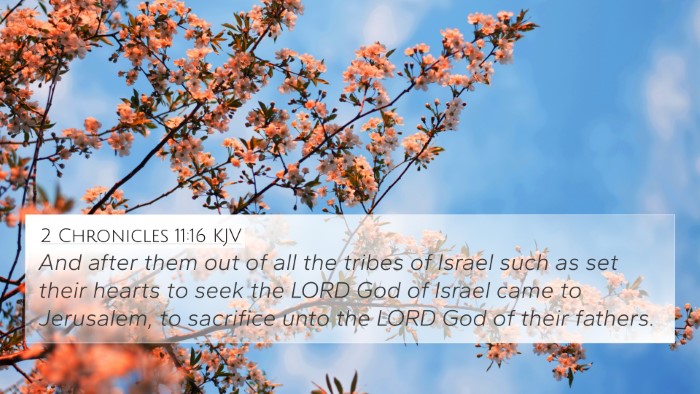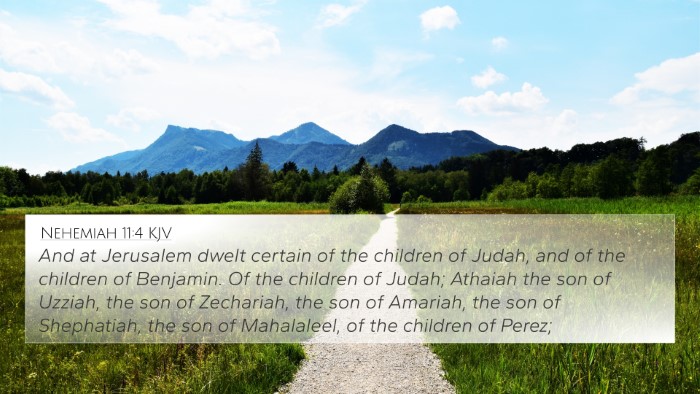Understanding 1 Chronicles 9:3: A Combined Commentary
Verse Reference: 1 Chronicles 9:3 reads: "And in Jerusalem dwelt of the children of Judah, and of the children of Benjamin, and of the children of Ephraim, and Manasseh."
This verse highlights the important theme of belonging and division among the tribes of Israel. Through a detailed commentary from public domain sources, we can glean a deeper understanding of its significance.
Contextual Overview
In this passage, we see the returning exiles from Babylon and their resettlement in Jerusalem. The emphasis here is on the different tribes that contributed to the rebuilding of the city. Understanding this context is vital when analyzing the connections between different Biblical texts.
Commentary Insights
According to Matthew Henry, this verse serves to remind readers of the unity and diversity of the tribes of Israel as they establish their presence in Jerusalem. Henry asserts that the inclusion of multiple tribes signifies the restoration of the community after exile.
Albert Barnes explains that this enumeration of tribes represents the importance of each group in the formation of the nation. It emphasizes the roles they played in the revival of Israel's worship and governance post-exile.
Moreover, Adam Clarke highlights the geographical significance of Jerusalem, which serves as a central location for these tribes to unite. Clarke notes that the familial connections and historical bonds among the tribes are essential for understanding their return and work in Jerusalem.
Thematic Connections to Other Scriptures
To grasp the implications of 1 Chronicles 9:3, it is beneficial to explore thematic Bible verse connections. Below are several Bible verses that connect with this passage:
- Ezra 1:5 - This verse discusses the families of Judah and Benjamin, emphasizing their voluntary return to their ancestral lands.
- Nehemiah 11:1-2 - It outlines the leaders who resided in Jerusalem, reinforcing the concept of community repopulation.
- Romans 11:1-5 - Paul discusses the remnant of Israel being chosen, connecting to the idea of preserved tribes.
- Isaiah 11:13 - Prophecy speaks of Ephraim and Judah not being adversaries, pointing to future reconciliation.
- Galatians 3:28 - This verse asserts that in Christ, there are no divisions between Jew and Gentile, drawing parallels to the unity across tribes.
- Psalms 122:3-4 - This verses celebrate the unity and peace of Jerusalem, a foundational point for the tribes settling there.
- Matthew 10:6 - Echoing Christ’s commission, Jesus sends His disciples to the lost sheep of Israel, tying back to the divided tribes.
Importance of Cross-Referencing
The practice of cross-referencing Biblical texts offers numerous benefits:
- Deepening Understanding: By identifying connections, one can appreciate the intricate tapestry of God's narrative across the Bible.
- Enhancing Interpretation: Comparative studies foster a fuller interpretation of passages, enhancing sermons and teachings.
- Historical Context: Understanding the cultural and historical implications behind these verses can shed light on contemporary applications.
Cross-Reference Tools
For those interested in further study, there are various tools and resources available:
- Bible concordances to locate verses with similar themes.
- Bible cross-reference guides that facilitate deeper engagement with scripture.
- Online Bible reference resources for comprehensive study plans.
- Bible chain references that follow themes through different texts.
- Cross-reference Bible study methods that can be applied in personal and group studies.
Conclusion
In conclusion, 1 Chronicles 9:3 serves as a powerful reminder of the collective identity among the tribes of Israel and their significance in the broader Biblical narrative. Through comprehensive analysis and thematic exploration, one can draw meaningful connections that enhance understanding and reflection on God’s Word.
By utilizing cross-referencing methods, believers can uncover deeper revelations and align their study with God's overarching message throughout the scriptures.
